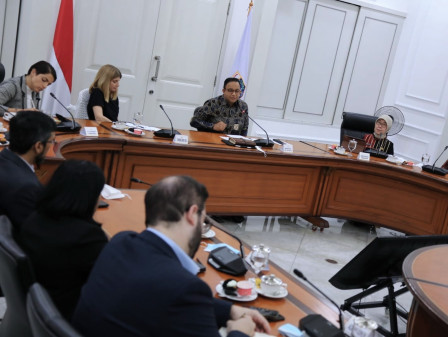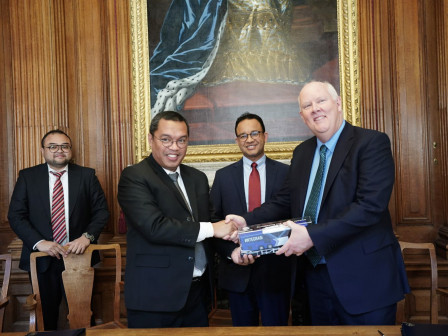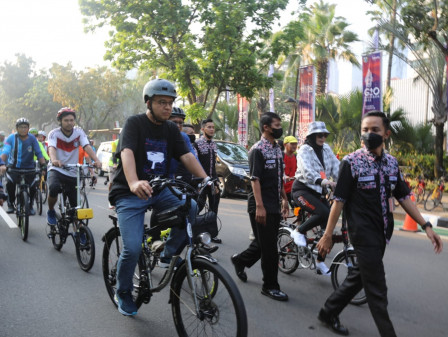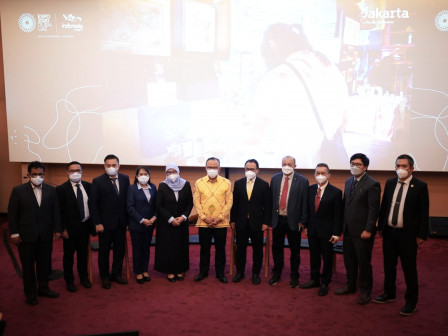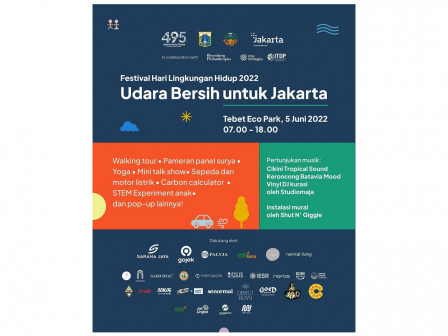Jakarta Holds Bilateral Meeting with Oxford and GHSC Representatives
Reported by Yudha Peta Ogara | Translated by Maria Inggita
The Jakarta Government held a bilateral meeting with representatives from the University of Oxford and the Global Health Security Consortium (GHSC).
As a city of collaboration, Jakarta strengthens partnership with various stakeholders
The meeting was attended by Jakarta Governor Anies Baswedan and his staff; Regius Professor of Medicine at the University of Oxford and Founding Principal of Global Health Security Consortium Professor Sir John Bell who attended online; and Global Health Security Consortium Executive Director Ms. Tamsin Berry OBE.
The meeting is a follow-up to a lecture delivered by the Governor while at the University of Oxford in May 2022 as well as a continuation of the collaboration between Jakarta and Oxford in the global health and life sciences division. It aimed at involving stakeholders in the public health sector at the Government and Regional General Hospital (RSUD) chairpersons about their experiences in dealing with the COVID-19 pandemic and discussing the steps of utilizing new technology, especially in developing a pathogen monitoring system to target existing and new communicable diseases, including Tuberculosis.
DTKJ Welcomes City Collaboration with Oxford UniversityHe said that the Government's key to the success in dealing with the pandemic was adhering to three principles in every policy taken.
"Three Principles of Crisis Handling in Jakarta, the first is transparency by providing factual information through the corona.jakarta.go.id. Second, a collaboration by involving participants from various stakeholders. Third, the science-based principle by involving professional organizations, epidemiologists, and other experts to get innovative recommendations for decision making," he stated in a meeting held at Jakarta City Hall's Executive Meeting Room, as quoted from Jakarta PPID Press Release, Thursday (6/9).
Moreover, Jakarta was the first and most massive in making breakthroughs, including the first province in Indonesia to form a Response Team, dashboard, and mobility restrictions. The city also built a testing and tracing big system through collaboration with laboratories and involved health centers and residents in tracing.
In the future, health challenges would be more diverse, one of which was the anticipation of tuberculosis (TB) as discussed in the meeting. Jakarta had committed to be free from TB by 2030, in line with several policies that had been implemented thoroughly.
"Several steps have been taken, namely strengthening the case tracking system through early detection; improving access and quality in TB treatment through door-to-door service carried out by health cadres to support drug-resistant patients; and increasing partnerships and community participation, such as improving public awareness," he conveyed.
Furthermore, the Government would also continue to improve the handling of HIV disease. Therefore, he also explained that in the future, Jakarta would need a system to manage communicable diseases other than COVID-19, through various early detection ad mapping of communicable diseases, as well as quick and appropriate responses to health challenges.
"As a city of collaboration, Jakarta strengthens partnerships with various stakeholders to ensure the sustainable development of Jakarta, including health security. We look forward to working with all stakeholders, co-creators, and partners, especially to support Jakarta as the center of economy, education, and health in Indonesia," he uttered.

